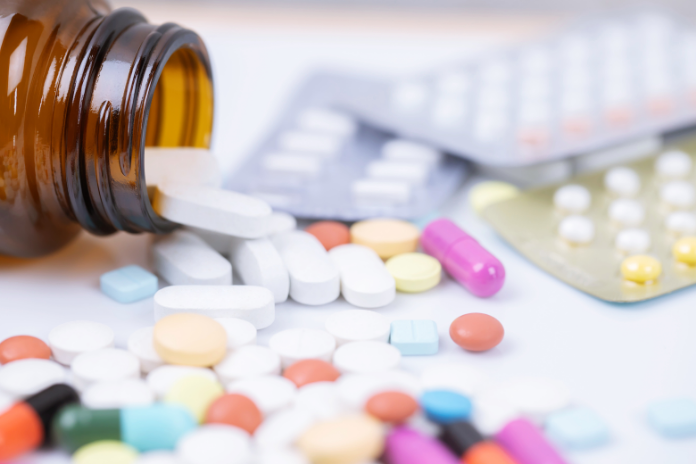Teenage is a critical age as in this time period teens explore which can lead to teenage drug use. Teens having drugs may have a greater risk of developing an addiction which is bad. Teenage drug use can lead to long-term cognitive and behavioral effects as the teenage brain is still developing. Recognition and prevention of drug use can help in ending an emerging problem before it starts.
Reasons for teenage drug use
Common reasons teens abuse drugs include –
- Curiosity
- Family history of substance abuse
- Peer pressure
- Stress relief
- Easy access to drugs
- Poor impulse control
- To find a balance between responsibilities
- Emotional struggles
- A desire to escape
- To self medicate mental problems
- Dependence and addiction
Signs for teenage drug use
Common signs of teen drug use are –
- Bad grades
- Bloodshot eyes
- Laughing for no reason
- Loss of interest in activities
- Poor hygiene
- Diminished personal appearance
- Avoiding eye contact
- Frequent hunger
- The smell of smoke on breath or clothes
- Secretive behavior
- Unusual tiredness
- Missing curfew
Common drugs used
- Alcohol
- Marijuana
- Opioids
- Cocaine
- Benzodiazepines
- Ecstasy
- Methamphetamines
- Synthetic marijuana
- Inhalants
- Anabolic steroids
9 tips for dealing with teenage drug use
It’s up to the parents to initiate a conversation with the teen if they’re suspected of drug use. The best way to get a teen to communicate about drug use is by asking compassionately and understanding questions.
Ask the teen’s views
Avoid lectures. Instead, listen to the teen’s opinions and questions about drugs. Assure the teen’s honest while talking.
Discuss reasons not to use drugs
Avoid scare tactics. Emphasize how teenage drug use can affect important things like sports, driving, health, and appearance.
Consider media messages
Social media, television programs, movies, and songs can glamorize or trivialize teenage drug use. Talk about what the teen sees and hears.
Discuss certain ways to resist peer pressure
Brainstorm with the teen about how to turn down offers of drugs.
Be ready to discuss parent’s drug use
Think about how to respond if the teen asks about your own drug use. If you chose not to use drugs, explain why. If you’ve indulged in teenage drug use then share the experiences that it taught you.
Know teen’s activities
Pay attention to the teen’s whereabouts. Find out what adult-supervised activities the teen is interested in and encourage them to get involved to avoid bad activities.
Establish rules and consequences
Explain the family rules, such as leaving a party where drug use occurs and not riding in a car with a driver who’s been using drugs. If the teen breaks the rules, consistently enforce consequences.
Know the teen’s friends
If the teen’s friends use drugs, the teen might feel pressure to experiment too.
Keep track of prescriptions drugs
Take an inventory of all prescription and over-the-counter medications at home.
Provide support by offering praise and encouragement when the teen succeeds. A strong bond between parent and teen might help prevent the teen from using drugs.
Seeking help for teenage drug use
Talk to teen
Never intervene too early. Casual teenage drug use can turn into excessive use or addiction and cause accidents, legal trouble and health problems.
Encourage honesty
Speak calmly and express your concerns. Share specific details to back up the suspicion. Verify any claims made by the teen.
Focus on the behavior, not the person
Emphasize that drug use is dangerous but that doesn’t mean a teen is a bad person.
Check-in regularly
Spend more time with the teen. Know the teen’s whereabouts and ask questions after returning home.
Get professional help
If a teen is involved in significant drug use, contact a doctor, counselor, or other health care provider for help.
Side effects of teenage drug use
- Anxiety
- Chest pain
- Lack of appetite
- Confusion
- Hallucinations
- Headaches
- Overdose
- Strained relationships
- Talkativeness
- Weight loss
- Insomnia
- Mania
Consequences of teenage drug use
Drug dependence
Teens misusing drugs are at increased risk of serious drug use later in life.
Poor judgment
Teenage drug use is associated with poor judgment in social and personal interactions.
Sexual activity
Drug use is also associated with high-risk sexual activity, unsafe sex and unplanned pregnancy.
Mental health disorders
Drug use can complicate or increase the risk of mental health disorders like depression and anxiety.
Impaired driving
Driving under the influence of any drug like alcohol can impair a driver’s motor skills, putting the driver, passengers and others on the road at risk.
Changes in school performance
Substance use can result in a decline in academic performance.
Conclusion
Teenage drug use puts the health and safety of teens at risk. Help prevent teenage drug abuse by talking to the teen about the consequences of using drugs and the importance of making healthy choices. It’s never too soon to start talking to the teen about drug use.
References –
